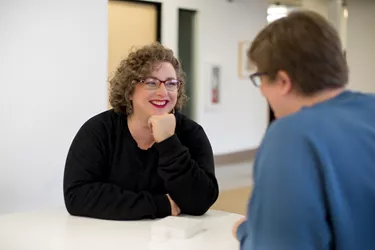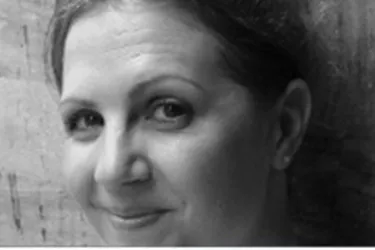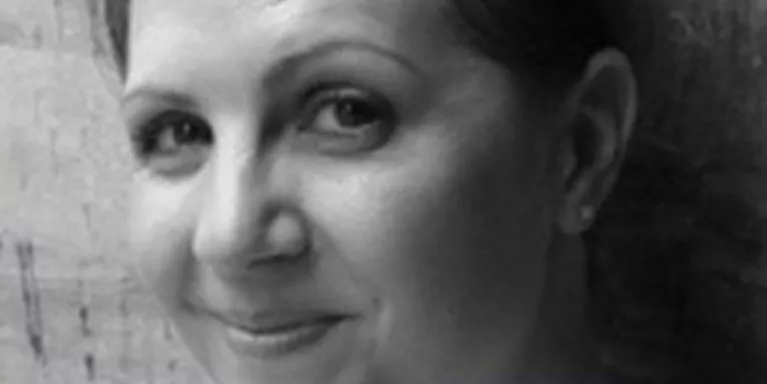How CBT helped me beat the bully in my head.
Sarah blogs about how cognitive behaviour therapy helped her manage her anxiety disorder.
"Things like this don’t happen to people like me. I’m just being silly, pathetic and weak, why can’t I cope? Everyone gets anxious from time to time, right?"
I am 39, married, have a responsible job and am in good physical health. I’ve always pushed myself to achieve and been determined. I’m considered successful, confident and friendly. But I have a life-long secret.
I’ve been bullied, both physically and emotionally, and those experiences have undoubtedly left their own scars. But by far the cruellest bully is the one inside my own head. My self-esteem is rock bottom.
That inner voice bullies me constantly: ‘you’re ridiculous’, ‘it’s not good enough’, ‘you’re an embarrassment.’ ‘You’re weird’, ‘no one loves you, no one even really likes you’, ‘you’re stupid...’
One cold winter January evening, I was wandering alone along Brighton seafront, crying, feeling numb, dead inside and useless. The last few months had been tough. I’d had a panic attack at work which had deeply unnerved me and added to my growing sense of unease, fearing another. I’d been through worse things in my life though and just tried to cope.
I battled on a few weeks longer but couldn’t think straight. I became forgetful and confused, I couldn’t sleep, had a constant sense of imminent panic and felt out of control and upset. I left keys in the front door, forgot my pin number, was exhausted mentally and physically... and had a breakdown. At one point I forgot how to drive and where I lived. Loud noises freaked me out, atmospheres or just being around people affected me intensely, every conversation with colleagues or friends set off intense uncontrollable paranoia.
I felt like I was losing my mind so I took myself off to my GP in a distressed state. I was diagnosed with an anxiety disorder, was prescribed medication and had two weeks off work. I managed with medication until a therapist was available and then started a six month course of CBT (Cognitive Behavioural Therapy).
My CBT therapist enabled me to explore what was happening and took me on a journey to understand how my inner critic was the product of self-imposed, often unreasonable and harsh rules that I had unwittingly created for myself over many years. Those rules stem from deeply held, long ago formed core beliefs. Here reside all thoughts and opinions you’ve developed about yourself through experiences and from others.
But here’s the thing – sometimes those core beliefs are based on flawed, harmful, cruel, skewed or downright wrong thinking in the first place. At times, exploring those beliefs and what had formed them was enlightening. At other times, it was deeply upsetting and hit ‘raw nerves’ of deeply held and sometimes long buried experiences. But once identified, they could be discussed, re-assessed and kicked into shape with the help of the therapist.
Through CBT I’ve rediscovered my voice and presence in meetings at work.
"I’m no longer over-analysing every small thing that happens, worrying about any potential error or mistake that I have made."
Having been obsessed with what others think of me and panicking about it, I’ve learned to not worry so much and even say to myself ‘so what?!’ which has been incredibly liberating.
Although I’ve finished my CBT, I’m still a work in progress. I may not yet be able to accept myself as loveable, but I’ve got as far as saying ‘I’m alright.’ Social events remain challenging, but I’ve learned to take compliments and positive feedback without just shrugging it off and only picking up the tiniest criticism, perceived or otherwise, with which to beat myself.
I take things far less personally and have made great inroads with being more open and sharing my feelings; asking for help instead of pretending everything is ok all the time. Talking to others has helped them to understand my anxiety. Moreover, it has enabled friends and colleagues to talk about their own mental health experiences, which I hope will mean we’ll look out for one another more and notice when others need support.


Information and support
When you’re living with a mental health problem, or supporting someone who is, having access to the right information - about a condition, treatment options, or practical issues - is vital. Visit our information pages to find out more.
Share your story with others
Blogs and stories can show that people with mental health problems are cared about, understood and listened to. We can use it to challenge the status quo and change attitudes.

















